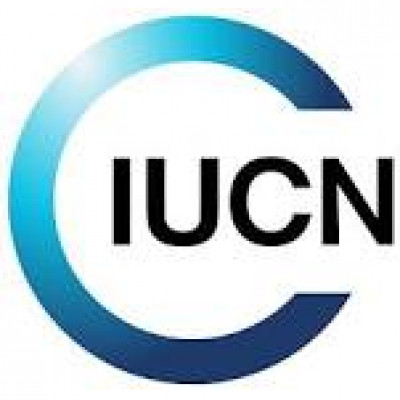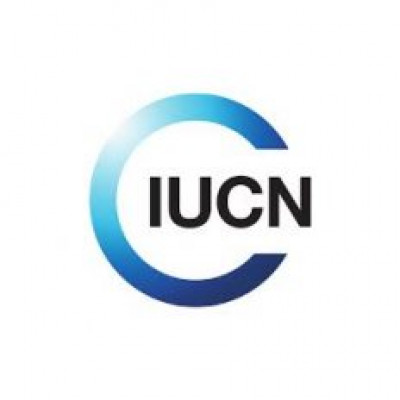Details
Description
The goal of this sub-project is to reduce and revert land degradation within the Georgetown watershed, St Vincent, by an integrated water, land, and ecosystems management approach. This is being pursued through several systematic outcomes:
Measurable stress reduction at project sites through appropriate sustainable water, land, and ecosystems management interventions that account for climate change
Enhanced livelihood opportunities and socio-economic co-benefits for targeted communities from improved ecosystem services functioning through an increase in revenue generating ventures
Increased consumptive use of riverine and near-shore marine fisheries (subsistence fishing - tri-tri, crayfish, mullets, macawk fish) as a result of improved ecosystem/watershed management
Strengthened national and regional systems for monitoring of environmental status with respect to key international agreements
Strengthened policy and legislation for the effective management of water, land and ecosystems resources that account for climate change
Strengthened capacity of national and regional institutions and other stakeholders for water, land, and ecosystems management that take climate change into account
Strengthened capacity of national and regional institutions and other stakeholders for water, land, and ecosystems management that take climate change into account
Improved information access and enhanced engagement of practitioners and other stakeholders via targeted knowledge sharing networks
The GEF resources are being focused on slowing and reversing current trends in land degradation, caused by deforestation and unsustainable land management practices. Specifically, the project will address GEF 5 Strategic Objective 3 "to reduce pressures on natural resources from competing land uses in the wider landscape" with co-benefits in the biodiversity, sustainable forest management (SFM) and international waters focal areas. Interventions will seek to increase forest and tree cover and implement landscape approaches for terrestrial and marine protected area management within the R2R framework. Integrated programming is likely to trigger transformational changes in the agriculture and forest sectors.
Against this background, the Project Execution Unit seeks the support of an Individual Consultant to carry out services in the role of a Water Management Expert. The Water Management Expert will be responsible for conducting a rapid water and land-related diagnostic analysis using a participatory approach. A rapid analysis will allow the Georgetown Watershed to be purposefully sampled through targeted sites. A participatory approach will enable local farmers and other community stakeholders the opportunity to contribute and partake in the assessment, thus providing a consistent ground for planning future developments in integrated water resources management and sustainable land management. Overall, these procedures for data collection are required to measure project indicators and establish a baseline.
Duties and Responsibilities
The ideal candidate will have a fundamental understanding of integrated water resources management and sustainable land management, and how to quickly and effectively conduct a rapid participatory analysis which will contribute to the establishment of national-level reporting frameworks, monitoring systems, and regulations.
Under the overall responsibility of the Cluster Head at the UNDP MCO in Barbados, the Water Management Expert will report to the Project Manager. Due to the scope of work, the Water Management Expert will work closely with several key stakeholders: local communities within the Georgetown Watershed, the Central Water and Sewerage Authority (CWSA), and the Forestry Department.
Under Project Component 2.1 - Systems for Monitoring, the Water Management Expert will be responsible for Activity 2.1.1.1 which is partitioned as follows:
Part 1: Conduct a participatory (rapid) water and land-related diagnostic analysis for the Georgetown Watershed
Part 2: Inform the development of watershed basin master plans (frameworks) for the Georgetown Watershed and code of practices for adoption in national regulations
The scope of work for the Water Management Expert will mainly consist of the following tasks and activities:
(Under Part 1 of Activity 2.1.1.1)
Task 1: A document review and preliminary work in preparation of the participatory (rapid) water and land-related diagnostic analysis
Review and analyse relevant documents (e.g., project documents, national reports, The Integrated Watershed Management Planning and Forest Reserve Protection Plan (2014) prepared for Cumberland Watershed, etc.) and existing legislation and regulations to understand the current state of local watershed management and sustainable land management.
Identify key data variables that need to be collected during the participatory (rapid) water and land-related diagnostic analysis in order to support the indicators (already identified in the project document) and form this baseline assessment.
Identify methods that can be used and adapted for the participatory (rapid) water and land-related diagnostic analysis inclusive of but not limited to participatory mapping, transects, and matrix ranking of different options.
Prepare questionnaires for surveys with community stakeholders and other similar materials that will be used for focus groups and workshops.
Task 2: An inception meeting with the Project Manager, CWSA, and the Forestry Department
Conduct an inception meeting with the Project Manager, CWSA, and the Forestry Department to accomplish the following:
Identify target sites and key community stakeholders.
Obtain feedback on the proposed strategy for the participatory (rapid) water and land-related diagnostic analysis: (i) key data variables and indicators to be assessed, (ii) proposed methodology and methods, and (iii) surveys and materials for workshops.
Request all relevant data and documents that would assist in providing baseline information (e.g., obtain water quality records from water sampling carried out by the CWSA under Project Component 1.1.).
A work programme agreed upon by all key stakeholders.
Organise the work and collaboration with these key entities for the successful execution of this project component
Prepare an inception report that provides details of the discussion and results of the inception meeting, describes the revised strategy for the participatory (rapid) water and land-related diagnostic analysis, and specifies an agreed work programme for this project component.
Task 3: A participatory (rapid) water and land-related diagnostic analysis
Conduct a participatory (rapid) water and land-related diagnostic analysis.
Carry out inspections and assessments at target sites – observe, map, and measure the extent of water, wastewater, and land-related problems, and baseline indicators.
Conduct surveys at target sites with farmers and other community stakeholders to identify problems, challenges, and trends, and to assess capacity which will set the ground for the design of appropriate technical solutions. Assess trends through:
A calendar of farming activities to understand farming, livestock, and irrigation practices.
A spatio-temporal analysis of georeferenced crop and livestock production to analyse changes in land-use over space and time.
An evaluation of hydrological impacts on river and runoff discharge volumes and sedimentation due to flooding events.
Identify any potential target sites within the watershed which would also require monitoring.
Appraise and analyse existing practices in the watershed. Define causes or constraints so appropriate solutions can be developed.
Facilitate focus groups and a workshop to promote discussions with all key stakeholders on observations from site assessments, findings from surveys, proposed interventions and arrangements, recommended codes of practices and best practice guidelines, and a collective vision for watershed management.
Identify the capacity needs of stakeholders and the resources needed to implement sustainable land use programs and related best practices.
Prepare a comprehensive report on the participatory (rapid) water and land-related diagnostic analysis.
(Under Part 2 of Activity 2.1.1.1)
Task 4: A summary report of recommendations for national regulations.
Based on the findings from the participatory (rapid) water and land-related diagnostic analysis:
Develop a list of problems, challenges, gaps, and requirements to be addressed through interventions and regulations.
Recommend code of practices based on best practice guidelines.
Recommend monitoring procedures and systems, water information systems, and decision support tools.
Competencies
Good organizational skills, proven experience in coordinating with national and local stakeholders, organising groups, and gathering documentation of results.
Good interpersonal skills with the ability to establish and maintain effective working relationships with stakeholders.
Proven ability and experience in survey, meeting, and workshop facilitation.
High flexibility and adaptation capacities.
Ability to work under pressure and tight deadlines without compromising the quality of the work.
Excellent writing and reporting skills in English.
Proficiency in the use of computer software applications, particularly Microsoft Office.
Availability to conduct field visits.
Knowledge of agricultural activities and experience with key stakeholders within the Georgetown Watershed would be an asset.
Core
Innovation - Ability to make new and useful ideas work
Leadership - Ability to persuade others to follow
People Management – Ability to improve performance and satisfaction ; Ability to work effectively with diverse groups of professionals towards common goals
Communication - Ability to listen, adapt, persuade, and transform
Delivery - Ability to get things done while exercising good judgement
Required Skills and Experience
Master’s Degree or higher in Water Resources Management, Natural Resource Management, Agricultural Management, Sustainable Land Management
Minimum five (5) years of experience in the sectors of water and land management.
Experience in conducting rapid and participatory surveys and assessments



